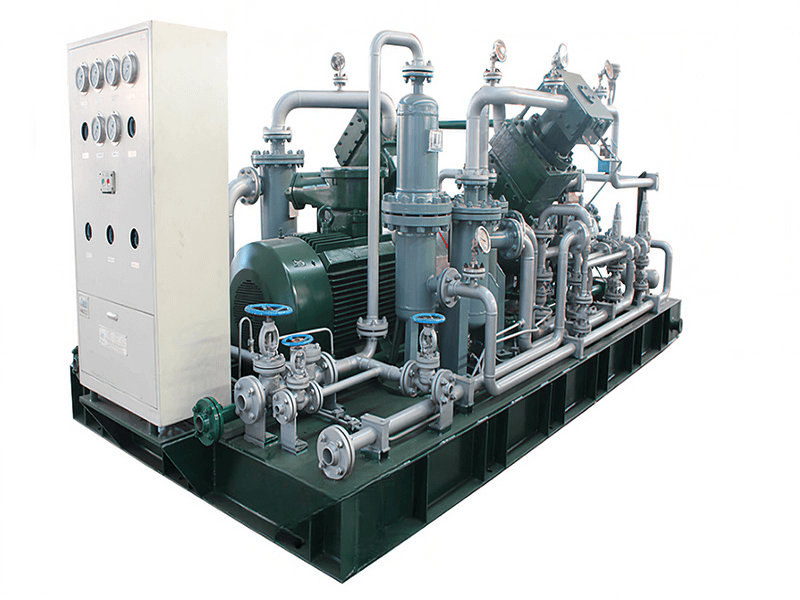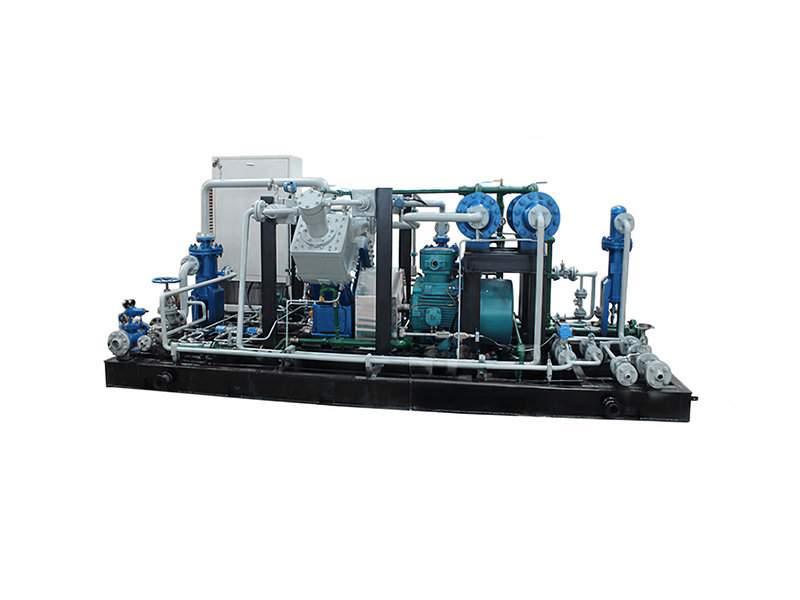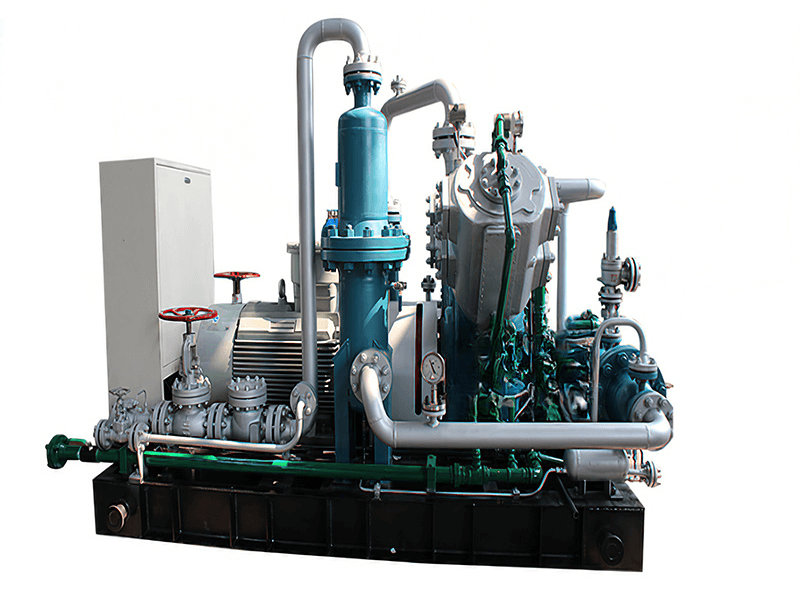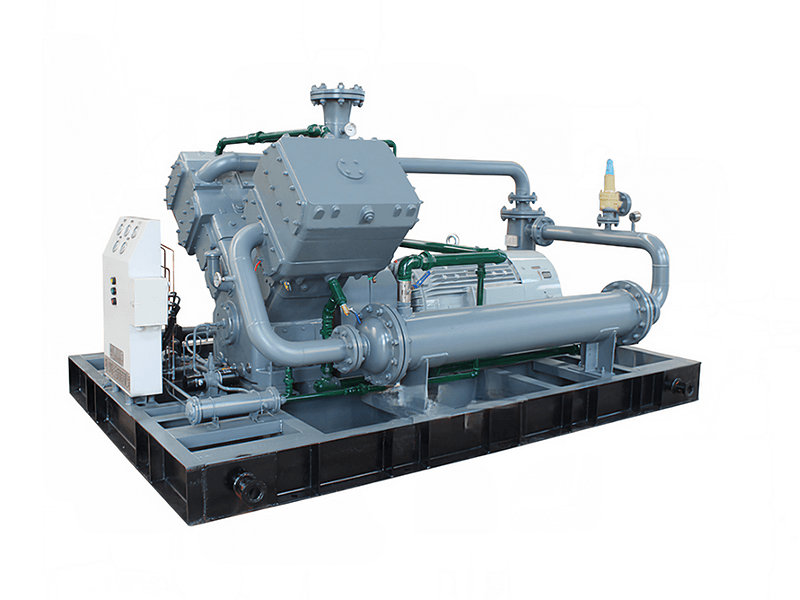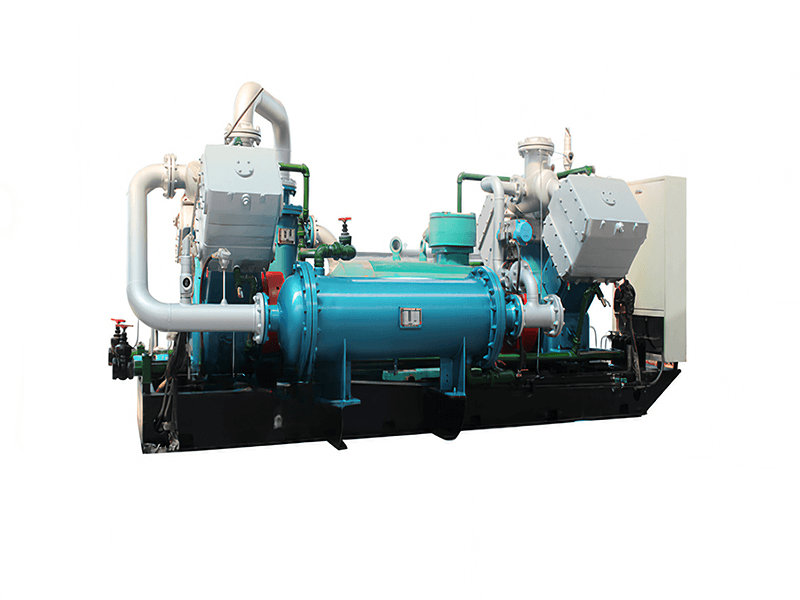Wellhead gas refers to the natural gas that is extracted directly from a wellhead, which is the equipment installed at the opening of an oil or gas well. It is the initial gas production from the well before it undergoes processing and treatment for further transportation and utilization.
When oil or gas wells are drilled and reach the underground reservoirs, the pressure within the reservoir forces the natural gas to flow to the surface along with other hydrocarbons such as crude oil or condensates. The wellhead is equipped with various components and valves that allow for the extraction and control of the gas flow.
Wellhead gas typically consists of primarily methane (CH4), along with other hydrocarbons such as ethane (C2H6), propane (C3H8), butanes (C4H10), and trace amounts of other gases. The exact composition of wellhead gas can vary depending on the geology of the reservoir, the type of hydrocarbon being extracted, and the presence of impurities.
Once the wellhead gas is extracted, it undergoes further processing to remove impurities, such as water vapor, sulfur compounds, and other contaminants, to meet the quality and regulatory requirements for transportation and utilization. The processed natural gas is then typically transported through pipelines or converted into liquefied natural gas (LNG) for long-distance transportation.
Wellhead gas is an important energy resource and serves as a primary feedstock for power generation, residential and commercial heating, industrial processes, and various applications in the petrochemical industry. It plays a significant role in meeting global energy demands and reducing reliance on other fossil fuels.

Wellhead gas compression
Wellhead gas compression refers to the process of increasing the pressure of natural gas at the wellhead using gas compressors. It is an essential step in the production and transportation of natural gas from the wellhead to processing facilities, pipelines, or storage facilities.
When natural gas is extracted from the well, it typically has relatively low pressure due to the reservoir conditions. Wellhead gas compression is employed to raise the gas pressure to the required level for efficient transportation and further processing.
The wellhead gas compression process involves the use of gas compressors, which are mechanical devices that increase the pressure of the gas by reducing its volume. Gas compressors function by taking in the low-pressure gas from the wellhead and compressing it using pistons, rotating impellers, or other compression mechanisms.
The compressed gas from the wellhead gas compressors can serve several purposes:
1. Transportation: Compressing the gas increases its pressure, allowing it to be transported efficiently through pipelines over long distances. Higher-pressure gas can overcome frictional losses and maintain the desired flow rates.
2. Storage: Compressed natural gas can be stored in underground storage facilities for later use during periods of high demand or to balance supply and demand fluctuations.
3. Processing: Wellhead gas compression helps in preparing the gas for further processing. The compressed gas may undergo subsequent treatment, such as separation of impurities, removal of water vapor, or extraction of natural gas liquids (NGLs).
4. Utilization: Some applications require natural gas at higher pressures than what is available at the wellhead. Wellhead gas compression enables the gas to meet the pressure requirements for specific uses, such as industrial processes, power generation, or fueling compressed natural gas (CNG) vehicles.
Wellhead gas compression systems may include multiple stages of compression to achieve the desired pressure level. The configuration and capacity of the compressors depend on factors such as the gas field characteristics, production rates, transportation distances, and end-use requirements.
Efficient wellhead gas compression is crucial for maintaining the flow of natural gas, optimizing production rates, ensuring safe operations, and maximizing the recovery of valuable resources. Properly designed and maintained gas compression systems contribute to the overall efficiency and profitability of oil and gas operations.
Requirements for wellhead gas compression for wellhead gas compressors
When it comes to wellhead gas compression for wellhead gas compressors, there are several requirements to consider. These requirements ensure efficient and reliable operation while maximizing the recovery and transportation of natural gas. Here are some key requirements for wellhead gas compression:
1. Compression Ratio: The compression ratio refers to the ratio of the discharge pressure to the suction pressure. Wellhead gas compressors should be designed to achieve the desired compression ratio based on the specific gas field conditions and transportation requirements.
2. Flow Capacity: Wellhead gas compressors should have the appropriate flow capacity to handle the expected gas production rates from the wellheads. The flow capacity is determined by factors such as well productivity, gas reserves, and transportation demand.
3. Gas Composition: The composition of the wellhead gas is an important consideration for compressor design. The gas composition affects the compressor's materials of construction, corrosion resistance, and potential for gas impurities such as liquids, solids, or corrosive elements.
4. Pressure and Temperature Ratings: Wellhead gas compressors must have suitable pressure and temperature ratings to handle the operating conditions at the wellhead. These ratings ensure the compressor can handle the maximum pressure and temperature encountered during compression.
5. Efficiency: Compressor efficiency is vital for minimizing energy consumption and operational costs. Wellhead gas compressors should be designed to operate with high efficiency, achieving maximum gas compression with minimal energy losses.
6. Reliability and Maintenance: Wellhead gas compressors play a critical role in the production process, so reliability is crucial. Compressors should be designed and constructed to withstand the demanding conditions of wellhead operations and require minimal maintenance to ensure continuous and uninterrupted gas flow.
7. Safety Features: Safety is of utmost importance in wellhead gas compression. Compressors should incorporate safety features such as pressure relief valves, temperature sensors, emergency shutdown systems, and fire protection measures to mitigate risks and protect personnel and equipment.
8. Environmental Considerations: Wellhead gas compression systems should comply with environmental regulations, including emissions control and noise reduction measures, to minimize their impact on the surrounding environment and nearby communities.
9. Control and Monitoring: Wellhead gas compressors should have robust control and monitoring systems. These systems enable operators to monitor the compressor's performance, adjust operating parameters, and detect any abnormalities or malfunctions promptly.
10. Compatibility and Integration: Wellhead gas compressors should be compatible with the overall gas production and transportation system. They need to integrate seamlessly with other components and equipment such as separators, pipelines, and storage facilities to ensure efficient gas flow.
It's important to note that the specific requirements for wellhead gas compression may vary depending on the gas field characteristics, production volumes, regional regulations, and project specifications. Consulting with experienced engineers and industry experts is essential to design and select the appropriate wellhead gas compressors that meet the specific requirements of a particular gas field or project.














